The challenges facing automotive retailers remain immense, making factors within the retailer’s control – essentially the customer experience and retention – all the more critical in the pursuit of business success.
Not surprising, then, that customer relationship management (CRM) continues to grow in stature and effective post-purchase communications could make all the difference when it comes to aftersales choices and, eventually, when it comes to replacing the vehicle.
Heather Scutchings, chief executive of MGS, says: “Working smarter, not harder, should be a cornerstone of CRM activity.”
The challenges facing automotive retailers remain immense, making factors within the retailer’s control – essentially the customer experience and retention – all the more critical in the pursuit of business success.
Not surprising, then, that customer relationship management (CRM) continues to grow in stature and effective post-purchase communications could make all the difference when it comes to aftersales choices and, eventually, when it comes to replacing the vehicle.
Heather Scutchings, chief executive of MGS, says: “Working smarter, not harder, should be a cornerstone of CRM activity.”
Robust data, including a single view of the customer, can automate and systematically convert as many of the routine processes as possible such as test drive follow-ups and service reminders; use customer behavioural analytics to identify when customers engage and trigger communications accordingly; and focus the sales team on leads with the most potential to convert not caught by automated marketing.
 Scutchings says: “Without robust data, contacting the right customer with the right information at the right time to drive bookings or sales can be impossible. And there’s evidence the UK dealer network still has work to do to get its data in shape.”
Scutchings says: “Without robust data, contacting the right customer with the right information at the right time to drive bookings or sales can be impossible. And there’s evidence the UK dealer network still has work to do to get its data in shape.”
MGS has completed 115 data health checks covering 555 franchised sites to date. Analysis shows that 24% of customer records contained a significant error that could prevent timely contact and hamper conversion.
On average, 17% of customers in the DMS no longer owned the vehicle and 27% of MOT due dates were out by 14 days or more.
Overall, £59,145 of real opportunity was deemed at risk for the average retailer through poor data health.
Once the data foundations are in place, automating the key touchpoints to ensure customers receive important information, at the appropriate time, is key. “Too many dealers rely upon marketing teams sending these communications manually,” Scutchings says.
 A schedule for each touchpoint can be created that automatically uses the customer’s preferred channel for initial contact before reminders are sent or secondary contact is made through a supporting channel. E-mail and web tracking is an underused and important tool to support focused follow-up.
A schedule for each touchpoint can be created that automatically uses the customer’s preferred channel for initial contact before reminders are sent or secondary contact is made through a supporting channel. E-mail and web tracking is an underused and important tool to support focused follow-up.
Using tools like automated service booking and integrated service plan quotations as extensions to the standard marketing allows dealers to manage most of the essential customer contact without direct intervention. MGS’s online booking solution generated more than 7,000 bookings for one dealer group last year.
Scutchings says: “Highly targeted outbound calls can be a game changer in driving bookings and improved retention rates. Using lead scoring and hot leads to focus precious dealer resource on contacting the right customers to nudge them towards booking is hugely valuable.”
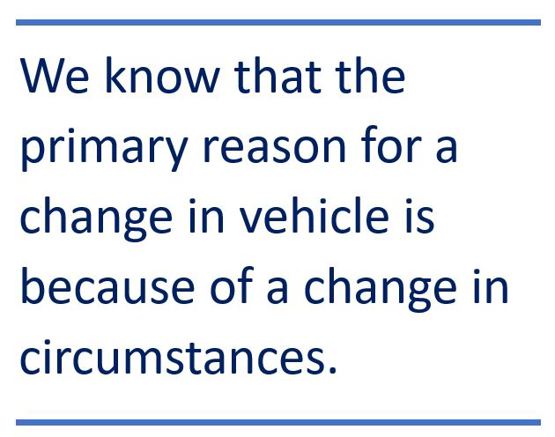 By using advanced lead scoring, MGS found 28% of records in the average DMS have less than 7% chance of converting, meaning a phone call to these customers isn’t worth the effort or cost. MGS has experienced a 70% increase in booking call conversion rate when using lead scoring and ‘hot lead’ methodology to prioritise call lists.
By using advanced lead scoring, MGS found 28% of records in the average DMS have less than 7% chance of converting, meaning a phone call to these customers isn’t worth the effort or cost. MGS has experienced a 70% increase in booking call conversion rate when using lead scoring and ‘hot lead’ methodology to prioritise call lists.
The customer experience follow-up should not be underrated since MGS analysis shows that 77% of customers who rated their previous experience at the dealership as a nine or 10 visited the dealer for the next scheduled service, while only 52% of those who scored the experience one-to-six returned. Likewise, Marketing Delivery urges retailers that, at enquiry, time of sale, and aftersales appointments, relevant information is collected including needs and circumstances, which are stored in the DMS. A proven method in the luxury brand sector which relies heavily on experiential activity and events to secure long-term relationships, premium and volume brands can do the same for future engagement.
Similarly, inference can be applied in many cases, for example, SUV owners might have an active lifestyle and, therefore, are more likely to buy accessories such as a cycle carrier or a roof box.
Charlotte Murray, Marketing Delivery commercial director, says: “We know that the primary reason for a change in vehicle is because of a change in circumstances, such as having a growing family or an altered financial situation. Best practice dictates that retailers should scope out key customer personas and monitor data quality to help them fine-tune their marketing efforts.”
The company applies a ‘test-learn-refine’ process whereby a particular customer journey or communication channel is tested, the results analysed and the process refined accordingly. Emails remind customers of an upcoming service or MOT, with an average open rate of 67% and non-openers receive a follow-up SMS around 10 days later both incorporating a link to book an appointment for added convenience. Social media advertising has also proved effective for customer engagement including retargeting strategies.
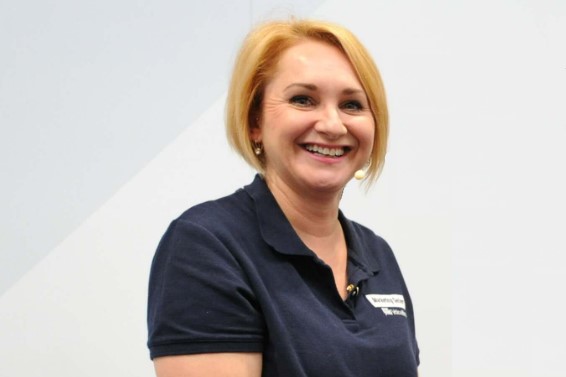 Murray (pictured right) adds: “We recognise that there is no ‘one size fits all’ solution for automotive marketing, which is why generic CRM systems often fail to support the kind of nuanced communication activity appropriate for motorists.”
Murray (pictured right) adds: “We recognise that there is no ‘one size fits all’ solution for automotive marketing, which is why generic CRM systems often fail to support the kind of nuanced communication activity appropriate for motorists.”
CitNOW Group’s companies continue to evolve systems and products to boost retention post sale. Dealerweb Showroom’s latest feature Equicalc, for example, enables sales managers to pre-empt the end of a finance deal and automatically identify used car stock to proactively propose a new finance deal. The tool analyses the customer's previous finance deals and add-ons previously bought to automatically create a bespoke deal.
Carol Fairchild, CitNOW Group’s chief operating officer, says: “This proactive, tailored approach is useful for the customer, and also improves the turnover of used car stock while enabling the sales team to prospect and retain customer loyalty.”
CitNOW Group found that two-thirds of customers expect a retailer to reply via the same method of communication yet only one third of retailers do so. CitNOW Conversations facilitates interaction with customers via their preferred messaging solution, adding value to the customer experience.
 This feature first appeared in the 2024 AM Spotlight on Customer Experience and Retention report.
This feature first appeared in the 2024 AM Spotlight on Customer Experience and Retention report.
Click here to read the report in full.
The role of AI
Marketing Delivery’s VoiceBox AI analyses retailer data from multiple sources, including the lead management system, dealer management system, and website inventory, and selects the most appropriate message for the customer. It then monitors customer behaviour to determine which communication to send next, automatically issuing a different email, an SMS, an alert to the dealership, or refining criteria based on a customer action. At the same time, VoiceBox monitors the retailer datasets for any changes that would affect the relevance of the next communication and checks the recorded data for accuracy against external databases, such as the DVSA, and updates records accordingly to maintain accuracy.
Murray said: “We aim to drive marketing efficiency and ROI – reaching the right person at the right time, with tailored and appropriate communication, while offering a great customer experience and reinforcing trust throughout the ownership journey.”
With increasing volumes of online enquiries making it harder to maintain quality and consistency in customer communications and its nine sites operating different dealer management systems, and shared software for email automation requiring a time-consuming setup, measurement was difficult for Barretts. VoiceBox Sales solution was implemented at its four JLR sites and after improvements in lead conversions and customer retention, it was rolled out across the full group in April last year.
In just four months, the system sent outbound communications to a defined batch of ‘lost’ leads, converting 38 into positive enquiries, 19 of which progressed to a sale. Across the same four-month period, 273 customers placed an order within a week of receiving an automated Stock Alert email, 74 of which did so after clicking on the email to view a specific vehicle listing.
AI tech company Phyron allows retailers to engage with its customer base more effectively with automated processes around regular upselling and servicing whilst AI technology can personalise communications.
Johan Sundstrand, Phyon chief executive and co-founder, said: “For two decades I've been helping companies across various sectors with marketing support, and in my experience, the car industry is the worst performing when it comes to customer retention. Of course, there are retailers who excel in this area, but in general I think as an industry, we still have a lot of work to do to get customer retention right.
“AI can process data to understand a customer's personal circumstances and produce video-led content on tailored suggestions for their next vehicle. In the near future, AI software will be able to write the script for video adverts, provide lifelike voiceovers and optimise itself based on the most successful ads that convert viewers into buyers. It can then handle communication with the customer and book test drives of preferred vehicles. Essentially AI can create a bespoke experience for every customer.”
Login to continue reading
Or register with AM-online to keep up to date with the latest UK automotive retail industry news and insight.


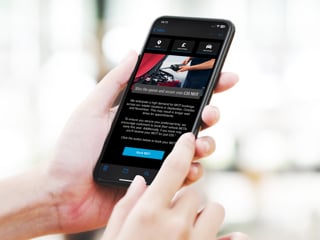
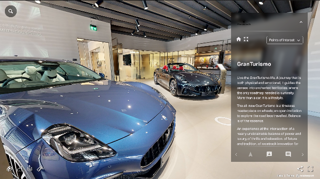


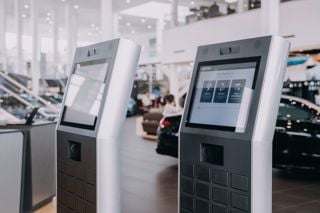












Login to comment
Comments
No comments have been made yet.